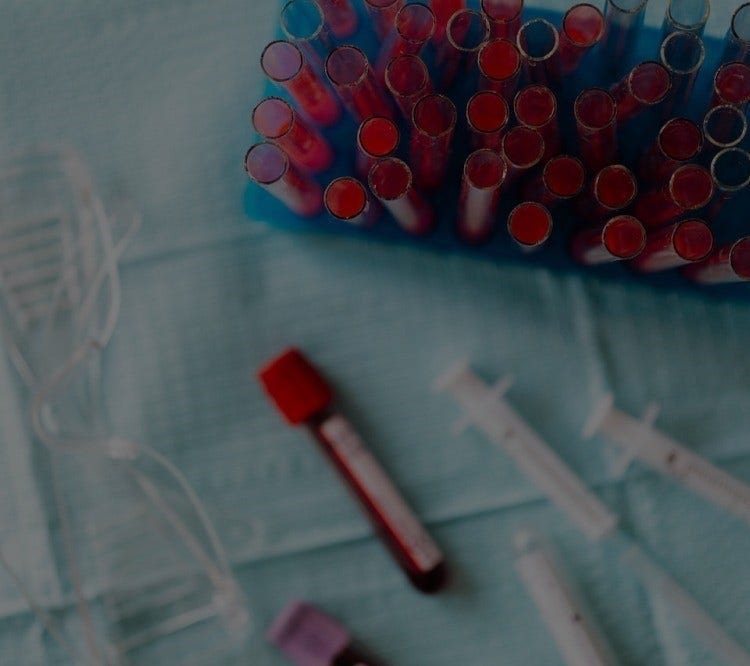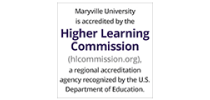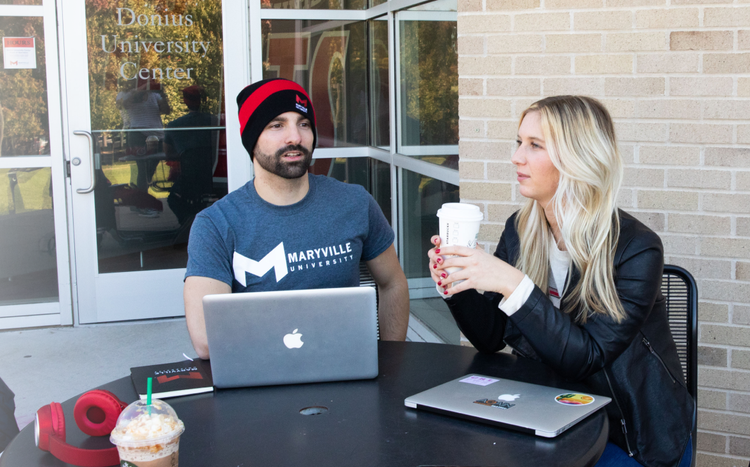

Online Psychiatric Mental Health Nurse Practitioner Programs
9% HIGHER THAN ANCC 2022 AVERAGE
Degrees and Certificates
As the population grows, hospitals and healthcare systems increasingly need psychiatric mental health nurse practitioners (PMHNPs) to assess and attend to the mental health needs of individuals, families, and groups. Now, learn to effect positive change in your community with an online PMHNP credential from Maryville University.
Choose from four paths — Master of Science in Nursing, Post-Master’s NP Certificate, Bachelor of Science in Nursing to Doctor of Nursing Practice, or Doctor of Nursing Practice with Nurse Practitioner concentration — to fit your current needs and career goals. No matter which path you take, you’ll gain the skills and knowledge you need to treat acute and chronic illnesses, helping people to manage their conditions and lead happier, healthier lives.
“I have great interactions with my fellow students. You get to know people. It feels like a small family. The faculty go the extra mile to make sure you’re successful. Go for it. You will have the support you need.”
— Kristina Coleman, Maryville Grad
Online PMHNP Programs
Important dates for 2026
Four Online PMHNP Programs
Why earn your online PMHNP degree or certificate?
Psychiatric mental health nurse practitioner career paths
The knowledge you gain from one of our online psychiatric mental health nurse practitioner (PMHNP) programs can prepare you to help people overcome mental health challenges in a wide range of settings, including:
- Hospitals and clinics
- Psychiatric hospitals
- Independent practices
- Family counseling, psychiatric, and substance-abuse treatment centers
- Assisted living facilities
- Home healthcare services
- Social services settings (schools, prisons, community health clinics, and shelters)
For more information about PMHNP careers, see our blog post, “What Do Psychiatric Nurse Practitioners Do?”
Psychiatric nurse practitioner job outlook
The demand for psychiatric nurse practitioners is rising. With public awareness of mental illness increasing, a shortage of psychiatrists in the U.S., and an aging and growing population, the need for psychiatric experts is greater than ever. In fact, psychiatric nurse practitioner jobs are projected to grow 38% from 2022 to 2032, according to the U.S. Bureau of Labor Statistics.
The American Association of Nurse Practitioners estimated that psychiatric health NPs are only 6.5% of the total nurse practitioner population, according to the 2024 update. That might be one reason why this growing population of NPs is well compensated: On average, PMHNPs earn $146,500 according to data compiled by PayScale.com. With a faster than average growth rate, limited competition, and high earning potential, qualified psychiatric NPs have advanced opportunities for growth.
- The U.S. Bureau of Labor Statistics (BLS) anticipates a 52% increase in job opportunities for nurse practitioners between 2020 and 2030.
- Psychiatric nurse practitioner roles are projected to grow 26% by 2020, according to NurseJournal.org.
- Psychiatric nurse practitioner was named among the “Best Nursing Career Specialties” by NurseJournal.org.
- The BLS reports an annual median salary of about $111,000 for NPs overall. According to PayScale.com, psychiatric nurse practitioners earn an average of about $112,157.
Why choose one of Maryville’s accredited online psychiatric nurse practitioner degree or certificate programs?
We’re a private, four-year institution ranked as one of America’s best colleges by both U.S. News & World Report and Forbes. We’re also proud to have been named to the Military Friendly Schools list. When you choose a psychiatric mental health nurse practitioner program at Maryville, you receive a flexible and highly regarded education with the convenience of 100% online coursework.
As a student at Maryville, you’ll:
- Maximize your time to earn an MSN or DNP
- Graduate from a program accredited by the Commission on Collegiate Nursing Education (CCNE)
- Enjoy a flexible and convenient 24/7 online learning model that allows you to plan time for work, life, and family obligations
- Explore important topics that can help pave the way to a better future for yourself and the nurses who follow in your footsteps
- Conduct research via clinical inquiry courses that will challenge your assumptions
- Learn from an expert faculty of nursing leaders who share their experiences and insights regarding public health and the nursing profession
- Receive a quality education experience based on caring, collaboration, and excellence
Earn an education with a strong ROI
We’re proud to be recognized among the leaders in social mobility in our region*:
- No. 1 in social mobility among private colleges and universities in the St. Louis area
- No. 1 in lowest average debt among regional private peers
- Top 3 in St. Louis for graduation rates and early-career earnings
These rankings serve as indicators of strong ROI for our graduates — meaning your Maryville education can help you start faster and go further.
Founded in 1872 — Top Ranked for Today





Online PMHNP Curriculum
One rewarding career specialty.
Online MSN PMHNP Concentration
MSN | Core Courses
This course explores focused and comprehensive health assessments in a variety of settings and patients across the lifespan. This includes development of health promotion strategies and prioritization of care.
Prerequisite: Online - NURS 611, NURS 615
Corequisite: On Ground - NURS 615
For the PMHNP concentration, contact an enrollment advisor.
Online BSN to DNP Program PMHNP Concentration
Online Bachelor of Science in Nursing to Doctor of Nursing Practice Program — Psychiatric Mental Health Nurse Practitioner Concentration (BSN to DNP PMHNP)
BSN to DNP | Core Courses
This course explores focused and comprehensive health assessments in a variety of settings and patients across the lifespan. This includes development of health promotion strategies and prioritization of care.
Prerequisite: Online - NURS 611, NURS 615
Corequisite: On Ground - NURS 615
This course is designed to introduce students to the purpose, content, and methods of epidemiology and biostatistics. Students will learn to evaluate and use output from statistical computing software.
Prerequisite: NURS 710
This course is designed to explore the phenomenon of interest related to the DNP scholarly project. Students will systematically develop a project protocol that is supported by the literature and submit it for department approval.
Course objectives:
- Develop a clinical question that guides the scholarly project.
- Read critically from professional nursing literature and other related disciplines to interpret, analyze and apply current research to improve practice.
- Apply a systematic approach to address clinical problems within healthcare organizations, including outcome measures and a sustainability plan to create meaningful changes in clinical outcomes.
- Develop a protocol and submit it to the DNP council for project approval.
- Develop the first chapter of the scholarly project that includes needed sections based on the selected DNP project format.
This course is designed to emphasize an objective approach to the integration and synthesis of knowledge. Manuscript preparation and practical use of evidence are incorporated to prepare students for the design of research proposals.
Prerequisite: NURS 700 and NURS 701
This course will allow the students to design an evidence-based project that will guide clinical practice. The feasibility of conducting this initiative will be explored. Potential funding sources and budget issues will be examined. Students will apply the elements of protection of human subjects and complete the Maryville IRB.
Prerequisite: NURS 700, NURS 701, NURS 702, and NURS 703
This course is designed to expand the students knowledge of clinical project data collection and analysis of data. Students will apply integrated research concepts pertaining to the clinical project. Utilization of various methods of data analysis and data management systems will be explored. Complete project data is needed prior to the start of this course.
Prerequisite: NURS 705 and NUS 705L
This course is designed to expand the students understanding of methods of dissemination in translational research. Variables that impact the analysis of data related to the scholarly project will be examined. Implications for patients, clinical practice and the healthcare systems will be explored and findings disseminated.
Prerequisite: NURS 706
For the PMHNP concentration, contact an enrollment advisor.
Online DNP-NP Program PMHNP Concentration
Doctor of Nursing Practice Foundation Courses (15 Credits hours)
This course is designed to introduce students to the purpose, content, and methods of epidemiology and biostatistics. Students will learn to evaluate and use output from statistical computing software.
Prerequisite: NURS 710
This course is designed to explore the phenomenon of interest related to the DNP scholarly project. Students will systematically develop a project protocol that is supported by the literature and submit it for department approval.
Course objectives:
- Develop a clinical question that guides the scholarly project.
- Read critically from professional nursing literature and other related disciplines to interpret, analyze and apply current research to improve practice.
- Apply a systematic approach to address clinical problems within healthcare organizations, including outcome measures and a sustainability plan to create meaningful changes in clinical outcomes.
- Develop a protocol and submit it to the DNP council for project approval.
- Develop the first chapter of the scholarly project that includes needed sections based on the selected DNP project format.
This course is designed to emphasize an objective approach to the integration and synthesis of knowledge. Manuscript preparation and practical use of evidence are incorporated to prepare students for the design of research proposals.
Prerequisite: NURS 700 and NURS 701
This course is designed to provide an understanding of the measurement of phenomena as it relates to the research process. Procedures for selecting, applying, and interpreting the correct statistical application to a research problem will be presented with students processing the results.
Prerequisite: NURS 700
Doctor of Nursing Practice Capstone Courses (18 Credits hours)
This course will allow the students to design an evidence-based project that will guide clinical practice. The feasibility of conducting this initiative will be explored. Potential funding sources and budget issues will be examined. Students will apply the elements of protection of human subjects and complete the Maryville IRB.
Prerequisite: NURS 700, NURS 701, NURS 702, and NURS 703
This course is designed to expand the students knowledge of clinical project data collection and analysis of data. Students will apply integrated research concepts pertaining to the clinical project. Utilization of various methods of data analysis and data management systems will be explored. Complete project data is needed prior to the start of this course.
Prerequisite: NURS 705 and NUS 705L
This course is designed to expand the students understanding of methods of dissemination in translational research. Variables that impact the analysis of data related to the scholarly project will be examined. Implications for patients, clinical practice and the healthcare systems will be explored and findings disseminated.
Prerequisite: NURS 706
Graduate of Nursing Core Courses (6 Credits hours)
Nurse Practitioner Core Courses (11 Credits hours)
This course explores focused and comprehensive health assessments in a variety of settings and patients across the lifespan. This includes development of health promotion strategies and prioritization of care.
Prerequisite: Online - NURS 611, NURS 615
Corequisite: On Ground - NURS 615
This course focuses on the pharmacological foundation for safely prescribing medical regimens of illnesses for individuals across the lifespan. Also included are illness prevention, non-pharmacological and legal implications for prescriptive authority for the nurse practitioner.
Note: Selection of appropriate therapies, patient education and evaluation parameters are stressed.
Psychiatric Mental Health Nurse Practitioner (21 Credit hours)
This course will cover assessment and identification of discrete aspects of cognition, psychopathology, affect and behavior in the diagnosis and treatment planning of psychiatric illness across the life span. Also included is the appropriate use, monitoring and evaluation of prescribing psychotropic medication, including pharmacokinetics and pharmacodynamics.
Prerequisite: NURS 611, NURS 612 and NURS 615
In this course theories and models will be used to develop an understanding of the etiologies of acute and chronic mental health disorders among adults and older adults. Selection of appropriate treatment strategies including individual and group psychotherapies will be discussed.
Prerequisite: NURS 660
Corequisite: NURS 662 or NURS 662C
This practicum course is designed to synthesize advanced practice knowledge relevant to adult and older adult patients with psychiatric illness. A variety of psychotherapeutic strategies will be explored.
Prerequisite: NURS 660
Corequisite: NURS 661
This is the first of two didactic courses designed to assist the student in development of the advanced practice nursing role with the care and management of individuals with a mental health disorder across the lifespan.
Prerequisite: NURS 661 and NURS 662 or NURS 662C
Corequisite: NURS 664 or NURS 664C
This practicum is designed to synthesize advanced practice knowledge relevant to patients with psychiatric illness across the lifespan.
Prerequisite: NURS 661 and NURS 662
Corequisite: NURS 663
This is the second of two didactic courses designed to assist the student in development of the advanced practice nursing role with the care and management of individuals with a mental health disorder across the lifespan.
Prerequisite: NURS 663 and NURS 664 or NURS 664C
Corequisite: NURS 667 or NURS 667C
This practicum is designed to synthesize advanced practice knowledge relevant to patients with psychiatric illness across the lifespan.
Prerequisite: NURS 663 and NURS 664
Corequisite: NURS 665
Online Post-Master's NP Certificate PMHNP Concentration
Graduate Nursing Core Courses (6 Credit hours)
This course will cover assessment and identification of discrete aspects of cognition, psychopathology, affect and behavior in the diagnosis and treatment planning of psychiatric illness across the life span. Also included is the appropriate use, monitoring and evaluation of prescribing psychotropic medication, including pharmacokinetics and pharmacodynamics.
Prerequisite: NURS 611, NURS 612 and NURS 615
In this course theories and models will be used to develop an understanding of the etiologies of acute and chronic mental health disorders among adults and older adults. Selection of appropriate treatment strategies including individual and group psychotherapies will be discussed.
Prerequisite: NURS 660
Corequisite: NURS 662 or NURS 662C
This practicum course is designed to synthesize advanced practice knowledge relevant to adult and older adult patients with psychiatric illness. A variety of psychotherapeutic strategies will be explored.
Prerequisite: NURS 660
Corequisite: NURS 661
This is the first of two didactic courses designed to assist the student in development of the advanced practice nursing role with the care and management of individuals with a mental health disorder across the lifespan.
Prerequisite: NURS 661 and NURS 662 or NURS 662C
Corequisite: NURS 664 or NURS 664C
This practicum is designed to synthesize advanced practice knowledge relevant to patients with psychiatric illness across the lifespan.
Prerequisite: NURS 661 and NURS 662
Corequisite: NURS 663
This is the second of two didactic courses designed to assist the student in development of the advanced practice nursing role with the care and management of individuals with a mental health disorder across the lifespan.
Prerequisite: NURS 663 and NURS 664 or NURS 664C
Corequisite: NURS 667 or NURS 667C
This practicum is designed to synthesize advanced practice knowledge relevant to patients with psychiatric illness across the lifespan.
Prerequisite: NURS 663 and NURS 664
Corequisite: NURS 665
Career Paths and Guides

Frequently Asked Questions

Psychiatric mental health nurse practitioners provide holistic mental healthcare for patients of all ages, from childhood through end of life. These in-demand professionals diagnose conditions, develop healthcare plans, implement treatment, and evaluate the effectiveness and progress of treatment. A career in this field may be a good fit for you if you have a passion for supporting people through difficult situations and helping them overcome mental health challenges such as mood disorders, addictions, and more.
PMHNPs work in many varied settings, including:
- Private physicians’ offices
- Hospitals and clinics
- Psychiatric hospitals
- Nursing homes
- Correctional facilities
- Private businesses
Find out more about career prospects for PMHNPs.
Yes, Maryville’s online PMHNP programs are accredited by the Commission on Collegiate Nursing Education (CCNE).
In addition, Maryville University proudly holds regional accreditation from the Higher Learning Commission (HLC). Maryville has maintained accreditation from HLC since 1941.
No matter where you are in your nursing career, Maryville University offers a psychiatric mental health nurse practitioner program for you:
- Master of Science in Nursing: Students may complete our MSN PMHNP program in as few as 32 months.
- Post-Master’s NP Certificate: Most students complete this program in about two years of part-time study. Students with eligible transfer credits often complete the program sooner.
- Bachelor of Science in Nursing to Doctor of Nursing Practice: Students may complete our BSN to DNP PMHNP program in as few as 40 months.
- Doctor of Nursing Practice with Nurse Practitioner concentration: Students may complete our DNP-NP PMHNP program in as few as 36 months.

